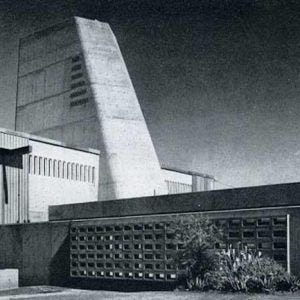 The Emirates Nuclear Energy Corporation (Enec) announced on 19 August that its operations and maintenance subsidiary, Nawah Energy Company, in partnership with the Abu Dhabi Transmission and Despatch Company (Transco), a subsidiary of Abu Dhabi National Energy Company (Taqa), had connected unit 1 of the Barakah nuclear plant to the UAE grid, “and is despatching its first megawatts of clean electricity to the nation”.
The Emirates Nuclear Energy Corporation (Enec) announced on 19 August that its operations and maintenance subsidiary, Nawah Energy Company, in partnership with the Abu Dhabi Transmission and Despatch Company (Transco), a subsidiary of Abu Dhabi National Energy Company (Taqa), had connected unit 1 of the Barakah nuclear plant to the UAE grid, “and is despatching its first megawatts of clean electricity to the nation”.
During the process Barakah 1 was integrated and synchronised with the requirements of the UAE’s national electricity transmission grid. This followed the start-up of unit 1 at the end of July. Since then, the operations team have run a series of tests, steadily increasing the power levels.
“This milestone is a significant moment in the continued safe, secure, and quality-led delivery of the UAE Peaceful Nuclear Energy Programme and its cornerstone, the Barakah Nuclear Energy Plant,” Enec said.
In 2009, a consortium led by the Korea Electric Power Corporation won a $20 billion contract to build four Korean-designed APR1400 reactors at Barakah. First concrete for Barakah 1 was poured in July 2012, and for units 2-4 in April 2013, September 2014 and July 2015.
Unit 1 received an operating licence in February and fuel loading was completed in March. The plant is expected to enter full commercial operation later this year.
“Grid connection of unit 1 really is the beginning of a new era in our project, which is built upon years of preparation and adherence to the highest international safety and quality standards. We are confident in our people and our technology to continue to progress to reach commercial operations, and the completion of the remaining three units, with the goal to power up to 25% of the UAE’s electricity needs for at least the next 60 years, said Enec CEO Mohamed Ibrahim Al Hammadi.
“This project, in addition to the UAE’s efforts made in implementing other forms of clean power generation, delivers one of the most ambitious clean electricity transformations in the region and the world, setting the nation on a new track of sustainable development and electrification.”
Transco played a key role in the project having constructed 952km of 400 kV overhead lines to connect the Barakah 1 to the Abu Dhabi electricity grid. “As the country forges ahead with utility-scale clean energy projects, Transco continues to ensure these projects can effectively integrate with our existing network infrastructure to provide a secure and stable supply of power to the community,” said Transco CEO Dr Afif Saif Al Yafei.
With the integration and connection complete, Barakah 1’s nuclear operators will begin the process of gradually raising the power levels, known as power ascension testing. Throughout this process, international best practice will be followed to safely progress and test the unit as it proceeds towards full electricity production, Enec noted.
This testing will be conducted under the continued oversight of the UAE’s independent nuclear regulator, the Federal Authority for Nuclear Regulation (FANR), which has now conducted more than 280 inspections since the start of Barakah’s development. This is in addition to over 40 missions and assessments by the International Atomic Energy Agency (IAEA) and the World Association of Nuclear Operators (WANO).
Enec recently announced the construction completion of Barakah 2, with operational readiness preparations now underway by Nawah. Construction Barakah 3&4 are in their final stages, with unit 3 being at 93% completion, unit 4 at 86% completion. The overall construction completion of the four units at Barakah NPP now stands at 94%.
Barakah 1 was connected to the UAE grid on 19 August (Photo: ENEC)






